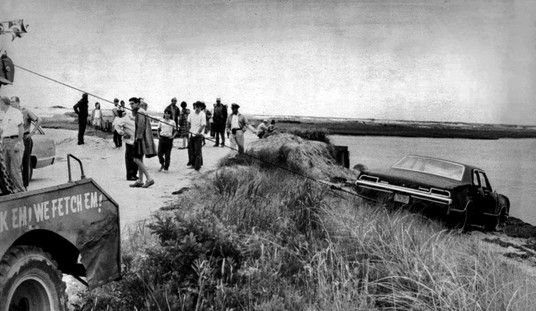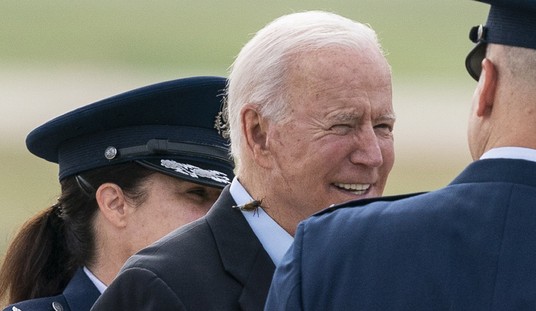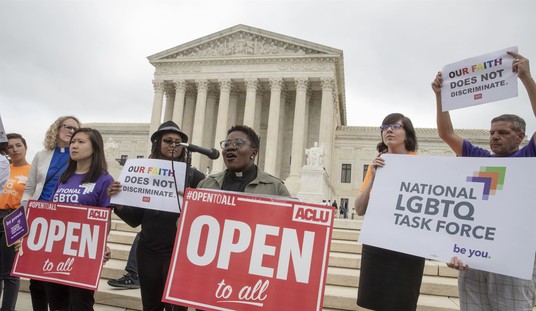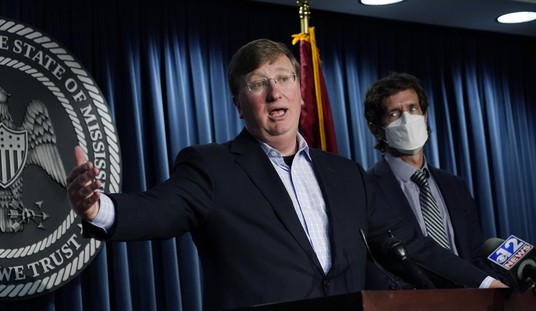(AP Photo/Chuck Burton)
Over the weekend, the Democrats’ Party Platform Committee officially adopted support for a $15 federal minimum wage. In doing so the Democrats aligned their economic policies with those of self-proclaimed Socialist Bernie Sanders. The completely arbitrary $15 minimum wage is more than double the current level of $7.25, nearly 50 percent more than the level President Obama advocated in 2014 and 25 percent more than presumptive Democratic nominee Hillary Clinton advocates.
Economists are nearly unanimous in their analysis that the higher minimum wage would create economic hardships for millions of small businesses and destroy the engine of America’s economic growth. In an op-ed in the New York Times, Stony Brook University Professor Peter Salins estimated that a $15 minimum wage could result in five million fewer jobs. Critically, those lost jobs would also cause low-income workers to become ineligible for the earned income tax credit – which could push them farther into poverty.
Even minimum wage advocates understand the economics behind mandated higher wages. The Washington Free Beacon pointed out last week that a Maine group hoping to enact a $12 minimum wage had jobs posted for just above $10 per hour, likely as a way to afford more workers:
The Maine People’s Alliance wants Maine’s minimum wage to increase from $7.50 to $12 an hour, a 60 percent hike. The group posted an advertisement on Craigslist hoping to recruit canvassers and community organizers to ‘Work toward a fair minimum wage for Maine.’ Prospective candidates must be willing to work about 20 hours a week for a starting wage of $429 every two weeks, which works out to about $10 an hour.
This trend goes beyond just one anecdote. Unions, which are among some of the most vocal proponents of a higher minimum wage, consistently seek exemptions to minimum wage laws as a way to boost their dwindling memberships. Their belief is that with an exemption, employers would be more amenable to negotiating with unions as an end around the minimum wage hike:
In California, San Francisco, Oakland, Richmond, Long Beach, and San Jose all have minimum wage laws with exemptions for unionized workplaces. One example: The San Jose Minimum Wage Ordinance contains Section 4.100.050, entitled Waiver Through Collective Bargaining, that states, “…all or any portion of the applicable requirements of this Chapter may be waived in a bona fide collective bargaining agreement, provided that such waiver is explicitly set forth in such agreement in clear and unambiguous terms.”
[…]
Union exemptions to minimum wage laws are not limited to the West Coast. They can also be found in Milwaukee, Wisconsin, and Chicago, Illinois.
But as unions might find more members, the overall workforce would experience challenges. According to the American Enterprise Institute’s analysis of Labor Department statistics, that is already playing out in Seattle. In June 2014, the Seattle City Council approved legislation to bring the City’s minimum wage to $15. Since the measure was passed, Seattle saw its largest three-month decline in jobs since 1990 – bucking the national trend that has seen the unemployment rate slowly creep lower. That’s because employers are finding it easier to move jobs – either out of the city or, as a 44-year-old manufacturing plant did, to other states:
His son David Burroughs is the Vice Chair and said Seattle’s new minimum wage nudged them into action. Burroughs said, “We’ve got competitors that are working at $2 an hour.”
[…]
“We have four plants in Seattle all completely full, and we’re renting space at very high rates around the city and that is a problem for Seattle because we can’t expand here. We can’t introduce new production here,” said Company President Joe Mc Swiney.
Moving to Reno, where the median price of a home is half what it is in Seattle, eliminates that disadvantage and could increase some workers’ disposable income even with wage cuts.
Not only is the Seattle law negatively impacting employment, but it is also likely to cause prices to rise for everyone else. A University of Washington April study suggested that 62 percent of employers expected to “raise prices of goods and services to accommodate the higher wages.”
In a tech-heavy ecosystem like Seattle, the economy may be able to absorb higher prices. But University of Washington Professor Jacob Vigdor said that other states are unlikely to be so fortunate:
A $15 minimum wage is “a lot easier in a town like Seattle, where there is some wealth to spread. And it might not work so well in a place that is uniformly higher poverty, doesn’t have as many of these tech sector jobs or other types of high-income employment to make it all work. So that is one thing that I can tell you.”
The Democrats’ radical and Socialist $15 minimum wage, will force businesses to slash jobs, shift to automation, and put some companies out of business.














Join the conversation as a VIP Member